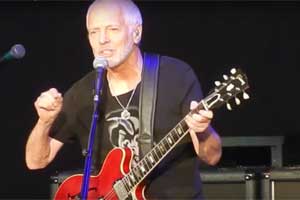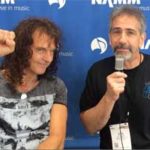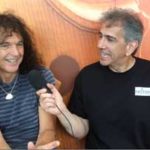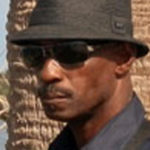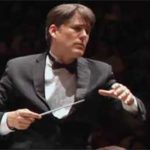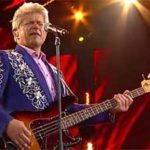From pre-Humble Pie to Frampton Comes Alive to today, 65-year-old rocker says being the guitar player in the band was “all I ever wanted to be”
By Gary Graff
April 1, 2016
It’s a long way from the days when Peter Frampton was “The Face of 1968,” playing with The Heard in his native Britain. And much has happened since then — Humble Pie, an ongoing solo career, mega-stardom and a near-crippling aftermath from 1976’s Frampton Comes Alive and a career redemption that’s allowed Frampton to remain one of rock’s venerable guitarists, songwriters, bandleaders and even equipment innovators. And that’s alongside appearances for others, including Beatles George Harrison and Ringo Starr, the late Davie Bowie, Bill Wyman’s Rhythm Kings and others.
This is a particularly auspicious year for the 65-year-old Frampton, marking 45 since he left Humble Pie to stroke out on his own and a full 40 since Frampton Comes Alive came out and sent him through the pop stratosphere, for better and for worse.
It also sees the arrival of a new album, Acoustic Classics, on which Frampton plays unplugged versions of some of his favorite material — yes, including “Do You Feel Like We Do” — along with one new song. He’s also been touring with an acoustic show as well as his full electric band, and the onetime Face tells us that he’s well shy of retiring.
FGPO: You’ve reached the ripe ol’ age of 65. No thoughts of retiring, of course, but what kind of perspective do you have on things from this vantage point?
Frampton: I’m not sure how I feel about being 65; I just know there’s some other rockers out there, the originals, who are even older than me! (laughs) I do realize I’ve been doing this a long time. I don’t necessarily feel old. The carcass doesn’t work as well as it used to, but the brain is still working and I feel the same way about my music and everything. I still have that drive. I haven’t lost it. I’m still very, very excited about what I do. It’s only when I look at myself in the mirror or try to do something that I used to be able to do physically that is now a touch more difficult. It’s a funny thing, age; You can’t stop it. There’s nothing you can do about it. But I seem to be enjoying things even more now, so that can’t be bad.
FGPO: Besides being Peter Frampton, solo artist, you’ve spent a lot of time both as a band member and as a hired gun — even for William Shatner. What rewards do you get out of that?
Frampton: My most comfortable position is being a hired gun, to play for other people. My only pressure is my own pressure on myself to be as good as possible. It’s always a learning experience playing with other people, ’cause no one plays or has the same feel and it’s always different. When you’re around that many players who are that high quality, it’s just this phenomenal experience of learning and playing and enjoying yourself. At the start of all this I really just wanted to be the guitar player in the band — and lo and behold I’m still in demand to do that very thing that my passion is for.
FGPO: You’ve had a lot of Beatles experience — on All Things Must Pass, playing in Ringo’s band, being on the CBS tribute special a couple years ago. What is it about playing that music that’s so special?
Frampton: It doesn’t get any better than that. You think you know them because they’re ingrained in our soul — until you start to listen to them and work out the parts. They’re simplistic, but they’re very, very clever. It’s really eye-opening. Don Was found this place where you can download just about every Beatles number, the multi-tracks — which shouldn’t be out there, but they are — and you can isolate the parts, and you learn so much about what they were playing that you never knew. It’s really fabulous.
FGPO: This year marks 45 years since you left Humble Pie to do a solo career. Ever regret it?
Frampton: I wish I could’ve done both. I would have loved to have been on Smokin‘; That was a great album. At the time it was bittersweet. Either way I wasn’t going to be thrilled, y’know? I was giving up something that was very instrumental to me. I learned so much from the guys in the band. We all matured so much and learned so much together, teaching each other what we listened to and everything. It was an apprenticeship, if you like. If you’re gonna do an apprenticeship, Humble Pie was the way to go for all of us. I never really wanted to not have that, but I don’t think in the scheme of things I would change anything. I can’t, anyway, so there you go.
FGPO: And it’s the 40th anniversary this year of Frampton Comes Alive — moment of silence. How are we feeling about that milestone?
Frampton: It seems like a long time ago. It does. But because the thing just seems to have a life of its own and it’s still as important to a lot of people now, and new people, a new audience which still surprises me. It gets handed down, still. I get 12-year-old guitar players coming up who remind me of me, or on Facebook that want to get pointers, and they’ve got the solo down, the talk box solo on “Do You Feel” or they’ve learned this part and that part. It’s a very honorable position to be in when these kids still today, 50 years later, are still using it as an inspiration to start to play and to learn to play.
FGPO: Any regrets or second thoughts about the fame that came in the wake of the album?
Frampton: Yesssss. (laughs) There was kind of a one-two punch — the (shirtless) cover of Rolling Stone straight into the movie (Sgt. Pepper’s Lonely Hearts Club Band). If the first one didn’t knock me down, the second one did. It just put the kibosh on — “Alright, we’ve had enough of this guy now.” I took the fall for everybody; Aerosmith, the Bee Gees, Earth, Wind & Fire, they all survived. It’s funny now, of course, and it’s also hilarious when people tell me it’s their favorite movie. Now they tell me — I’d like to wring their necks! (laughs)
FGPO: You did make it back, however, and you’re arguably more respected as a guitarist now than you ever have been — which I assume you think is as it should be?
Frampton: Oh, definitely. Definitely. Like I said, that’s all I ever wanted to be, the guitar player in the band. And I’ll tell you that David Bowie, my dear old school friend, really helped with that when he had me be part of the band for the (1987) Glass Spider Tour. That really re-established my cred, if you will, and after that I was able to really put the focus back on my guitar playing, and keep it there ever since.
FGPO: David’s death hit everybody hard, but you perhaps harder than many. What thoughts do you have about his passing now?
Frampton: It’s hard to talk about for me, still. He was a great, dear friend. We grew up together, y’know what I mean? We went to the same school, so obviously it’s hit me very hard. He was a friend of my parents, my kids. He’s been a tremendous friend. I miss him greatly. And as an artist he was totally unique. We’re losing people left and right here; I think that plays into it with me emotionally, too, but that was a hard one, David.
FGPO: Unplugging for “Acoustic Classics” surprised a lot of people. How did that come about?
Frampton: “People have been trying to get me to do it for years, and I just didn’t want to try it and I now think it was just stubbornness or fear, or fear and then stubbornness because I was scared. I’ve done a couple of acoustic numbers with the band in my shows, but that’s not like this. This is a whole different thing.
FGPO: What was different in approaching these songs in an acoustic fashion?
Frampton: It’s a whole different kind of feel. It’s like reverse-engineering them back to where they started in their most simplistic form, and it’s a communication thing. I wanted it to be like, “‘Hey, sit down. I’ve just written a song” and I sit down and play you “Lines on My Face” or whatever, and you were likely drawn in ’cause you’re the only person in the room besides me. And that’s how I looked at making the album, like a one-on-one thing. And it was funny because when I started the CD I thought, “Ha, ha, it’s gonna take me a couple days,” and, yes, I was wrong. Because I have such a high standard of my own output, I did two or three tracks and came into the control room and listened to them and was like, “It’s OK. It’s good. It’s fine. It’s me doing the songs.” But those songs are 50 years old, some of them, and they have morphed into something completely different. So instead of knocking off the tracks in a couple of days I spent a few months going in every day doing different performances of the songs until I found the ones that worked for me.
FGPO: Did you gain any sort of songwriting insight by “reverse-engineering” these songs?
Frampton: It’s interesting that you should say that because some of these song are very old; they were written when I was 19 or 21 or whenever, and I had not a clue how to write a song back then. But it’s kind of good that I didn’t know because I wouldn’t have written them the way I did. That doesn’t necessarily mean you’re going to write better songs; It just means they’re going to be different. I mean, the opening song on “Wind of Change,” “Fig Tree Bay,” there’s no chorus! (laughs) But you don’t realize it when you’re listening to it because there’s parts in the song that keep coming around, so it most people don’t feel like, “Oh, there’s no chorus in that song.” So I do have an appreciation of the naive way I used to write, which isn’t wrong, as the way I write now is not wrong, either. There’s no rules to writing a song.
FGPO: What are you gearing up for next?
Frampton: Well, people in the industry have said that the more senior artists like myself (chuckles), no one wants to hear new music from them, so don’t worry about it anymore. Don’t write anymore. I get it. But that’s not the reason you started doing it in the first place. So even though new music from me isn’t going to leap up to the Top 50 stations or streams or whatever, it doesn’t matter to me because it’s what I do every day. I get up and I practice, and while I’m in the middle of practicing I write something. I’m always creating, and whether people want to hear it or not, I’m gonna do it. And I’ll put out an EP or an album’s worth or dozens of songs or whatever, and I’m going to keep doing it because I enjoy it.
